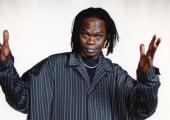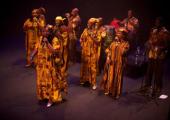Opinion: Time to say goodbye to the label 'World Music'

These two little words were a marketing tool we no longer need
Although the phrase “world music” was first coined by American ethnomusicologist Robert Brown in the 1960s, it didn’t become a brand, as it were, until 1987, when a bunch of London-based DJs, musicians and record company folk (including the late Charlie Gillett) met in an Islington pub and landed on the idea of putting all this foreign music under one commercially viable umbrella. So you could say that world music was spawned so that record shops would know where to put world music records.









